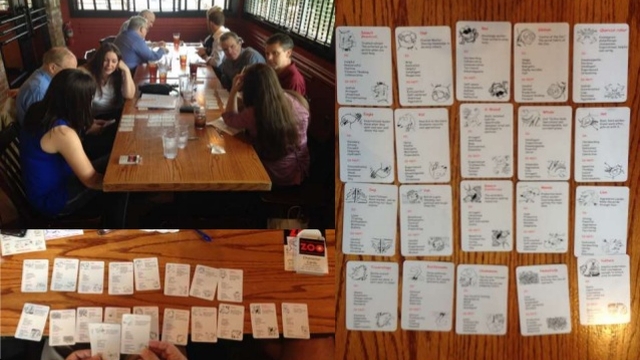
Which forms of gamification and types of platforms best support knowledge sharing?
There are high expectations in the knowledge management (KM) community regarding the potential for gamification to increasingly facilitate KM, and especially knowledge sharing motivation and behaviors. These expectations are supported by research, as discussed in previous RealKM Magazine articles including The potential for gamification in knowledge management1 and The use of gamification in knowledge management processes2.
A paper3 presented at the 2014 European Conference on Information Systems (ECIS) adds to the academic literature on gamification in KM by examining the effects of three primary forms of gamification on the quantity and quality of knowledge sharing across two types of platforms. Authors Hairui Tang, Nannan Xi, Xinyi Yang, and Juho Hamari from Tampere University carried out a meta-analytic review using the PRISMA guidelines4. A database search followed by an evaluation and forward and backward searching identified 25 papers encompassing 54 data sets for further analysis.
Forms of gamification, types of platforms, definitions
The three primary forms of gamification addressed in the study are:
- Immersion-related. Features that attempt to engage players in self-directed exploration, including elements such as avatars, role-playing mechanics, storytelling, narrative structures, and customization.
- Achievement-related. Features that offer opportunities for players to acquire new skills, establish clear objectives, and receive feedback.
- Social-related. Features such as groups, messages, blogs, connection to social networks and chat can enhance players’ sense of connectedness and belonging through frequent communication, idea sharing, and reciprocity.
The two types of platforms addressed in the study are:
- Organizational (or internal) platforms. Usually formed based on strong relationships (e.g., colleagues) that exists between close members with frequent interactions or meetings.
- Public platforms. Involve weak relationships caused by distant social relationships and very infrequent meetings or interactions.
The quantity and quality of knowledge sharing are defined as:
- Quantity. The number of knowledge sharing behaviors or knowledge sharing outputs, such as articles, posts, and so on.
- Quality The quality of knowledge sharing behaviors or knowledge sharing feedback, such as ranking, votes, likes, and so on.
Findings
From their study, Tang and colleagues make the following findings:
- Overall, gamification can be a useful approach for promoting knowledge sharing, with positive effects on both the quantity and quality of knowledge contribution.
- Among the three forms of gamification, immersion-related gamification is more likely to enhance both quality and quantity of knowledge contribution. Social-related gamification only influences the quality of knowledge contribution, and achievement-related gamification only influences the quantity of knowledge contribution.
- Compared to public platforms, organizational platforms diminish gamification’s impact on knowledge sharing quantity, but enhance its effect on knowledge sharing quality.
Recommendations for KM practice
From their study findings, Tang and colleagues make the following recommendations for KM practice:
- Despite the difficulties and high costs associated with the design, investment in the development of immersion-related gamification is recommended.
- Although social-related gamification and achievement-related gamification are widely used, gamification designers should be cautious about over-relying on these forms.
- Different platform types may require different gamification strategies to achieve optimal outcomes. It is important to select effective gamification design strategies based on the organization vision or the platform strategy goals.
Header image: The Organisational Zoo Character Cards are an example of how immersion-related gamification can be used in knowledge management. The Organizational Zoo has been developed by RealKM Platinum Patron Dr. Arthur Shelley, and is a well researched and developed set of metaphors that enables individuals and organisations to enhance performance and reduce stress. © Dr. Arthur Shelley, CC BY-NC-ND 4.0.
References:
- Shpakova, A., Dörfler, V. and MacBryde, J. (2016). The role(s) of gamification in knowledge management. In: EURAM 2016: 16th Annual Conference of the European Academy of Management, 2016-06-01 – 2016-06-04, Université Paris Est Créteil. ↩
- Sampaio, M. C., Sousa, M., & Dionísio, A. (2019). The use of gamification in knowledge management processes: a systematic literature review. Journal of Reviews on Global Economics, 8, 1662-1679. ↩
- Tang, H., Xi, N., Yang, X., & Hamari, J. (2014). Gamification and Knowledge Sharing: A Meta-
Analytic Review. ECIS 2024 Proceedings, 4. ↩ - Moher, D., Liberati, A., Tetzlaff, J., Altman, D.G., & Prisma Group. (2009). Preferred reporting items for systematic reviews and meta-analyses: the PRISMA statement. PLoS medicine, 6(7), e1000097. ↩





